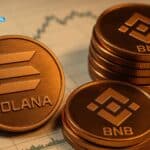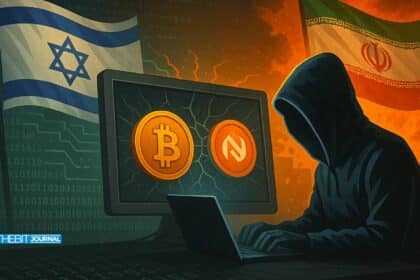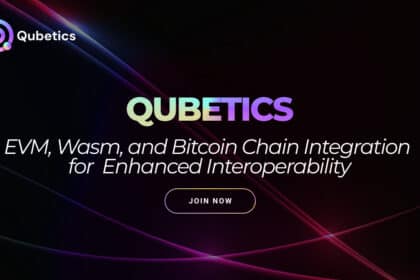The United Arab Emirates takes another giant leap (DAOs) forward in blockchain and digital assets by introducing a regulatory framework tailored for decentralized autonomous organizations. Unveiled in Ras Al-Khaimah’s Digital Assets Oasis, the Association Regime aims to position the region as a worldwide nexus for decentralized finance and third-generation internet technologies.

Providing decentralized autonomous organizations with a solid legal foundation, the framework allows on-chain and off-network activities to occur compliantly under local directives. As the initial decentralized autonomous organization standards in the Middle East, commentators anticipate this regime spurring additional innovation and investment into Ras Al-Khaimah as a global hub for governance-free finance and emerging web protocols.
A Tailored Approach to DAO Governance
One of the central challenges DAOs face is bridging the gap between decentralized, blockchain-based governance models and conventional financial systems structured under traditional regulations. DAOs, inherently governed by intelligent smart contracts and decentralized voting procedures, typically lack formal acknowledgement in jurisdictions adhering to standard business standards. This disconnect has historically made it quite difficult for DAOs to engage productively in arenas like banking, tangible asset possession, and entering legally binding agreements.
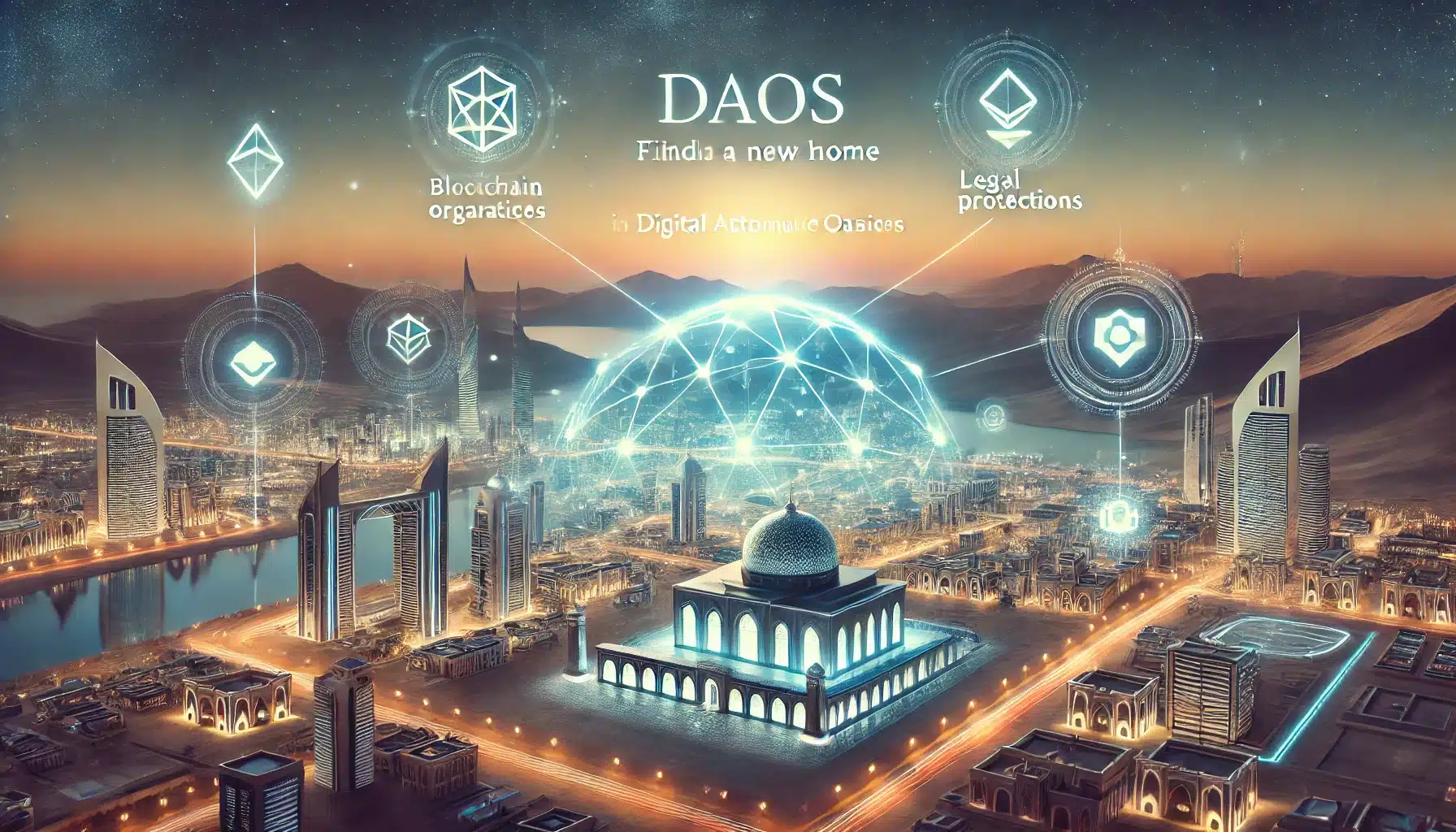
According to Luc Froehlich, CCO of RAK DAO, the initiative is a key part of the region’s strategy to create a global hub for digital assets.
Froehlich said:
“By offering a structured legal framework, we enable DAOs to interact with the off-chain world, such as opening a bank account and owning both on- and off-chain assets.”
The freshly initiated DAO Association Regulations established by the UAE directly address these issues by supplying DAOs with a recognized legal framework to function as legitimate entities. This tactic confirms that DAOs can presently own both on-ledger and off-ledger holdings, such as initiating banking accounts, a development that substantially diminishes impediments for these decentralized alliances to participate in more comprehensive monetary ecosystems. Furthermore, the regulations provide legal protection for DAO originators, members, and contributors from personal liabilities, motivating more worldwide individuals to conduct operations from the UAE.
Dual Regulatory Models for DAO Development Stages
RAK’s framework offers variable administration models for DAOs tailored to size and maturity. Small DAOs, typically under 100 individuals, can benefit from a streamlined inscription approach, making simpler for budding institutions to find themselves. In contrast, bigger DAOs—those overseeing treasuries surpassing $1 million—will be at the mercy of a more refined collection of guidelines to tackle the convolutedness of larger-scale tasks.
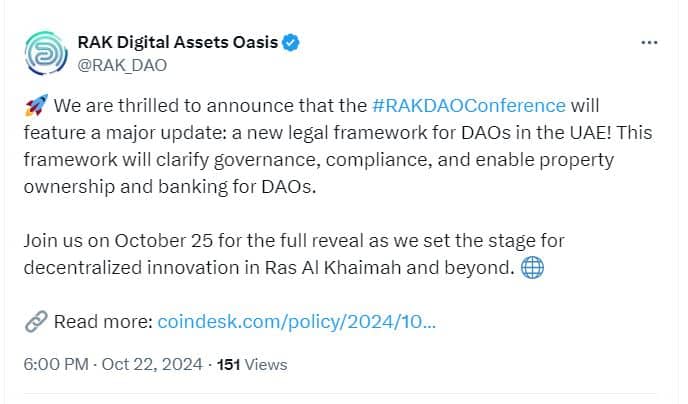
This adaptable approach presents adaptability for both new and set up DAOs, ensuring organisations of all sizes can flourish inside the lawful structure. It also furnishes scalability, allowing DAOs to evolve inside a secure and consistent organic framework.
Legal Clarity and Global Impact
The DARe framework looks to resolve several long-standing challenges that have hindered widespread adoption of DAOs in conventional company settings. Provisions for tax planning, dispute arbitration, and legally binding agreements serve to legitimize DAO activities within the broader economic sphere. This equips worldwide entrepreneurs and engineers with the tools required to interact with tangible affairs while capitalizing on the decentralized governance platforms that DAOs facilitate.
More broadly, this regulatory manoeuvre is part of the UAE’s continued initiative to emerge as a leader in the developing digital economy. By nurturing innovation through secure, compliant structures, RAK aims to attract not only DAO projects but also other decentralized finance undertakings. This work supplements other regulatory milestones nationwide, such as the recent endorsement of the AED Stablecoin, a dirham-pegged electronic currency, thereby strengthening the UAE’s position as a forward-looking state in the crypto domain.
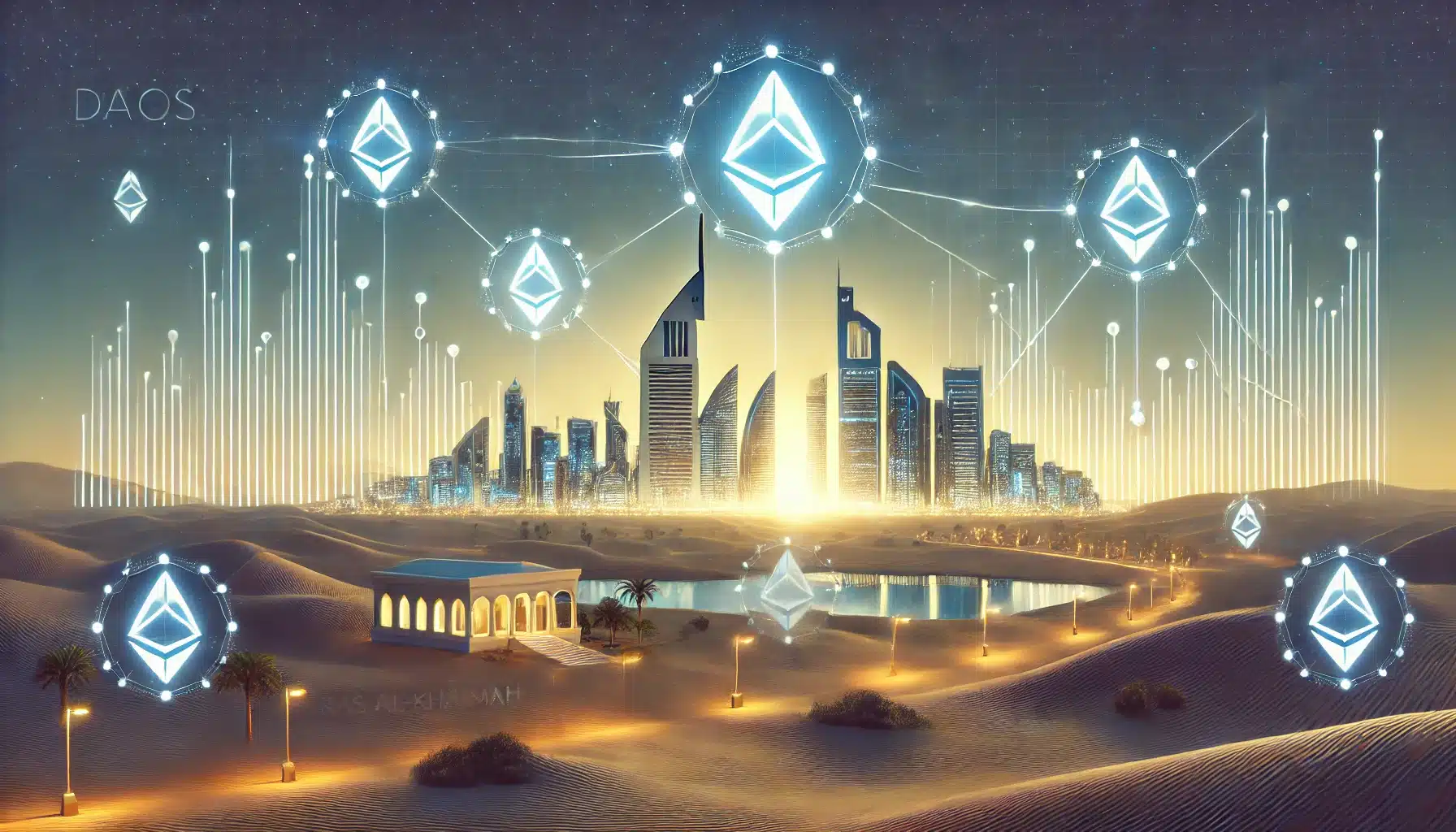
Conclusion
The introduction of legal guidelines for decentralized autonomous organizations in the UAE is a pivotal moment for both the global Web3 and blockchain industries. By legislating ownership rights, asset control, and banking abilities, the Ras Al-Khaimah Digital Assets Oasis is cultivating a fertile habitat where DAOs can integrate seamlessly within both on-chain and off-chain ecosystems. The DAO Association Regime plays a fundamental role in the UAE’s vision to be a worldwide pioneer in digital assets, with implications likely to echo far outside the borders of the Middle East.
This forward-looking framework guarantees that DAOs, irrespective of scale, have opportunities to thrive in a compliant, protected, and innovative environment—paving the path for more extensive global adoption of decentralized governance. Lengthier and shorter sentences alike showcase the depth and breadth of considerations surrounding decentralized organizational management, highlighting both the complexity and humanity underpinning this emerging model of collaborative coordination.
Stay tuned to TheBITJournal and keep an eye on Crypto’s updates. Follow us on Twitter and LinkedIn, and join our Telegram channel to be instantly informed about breaking news!


















